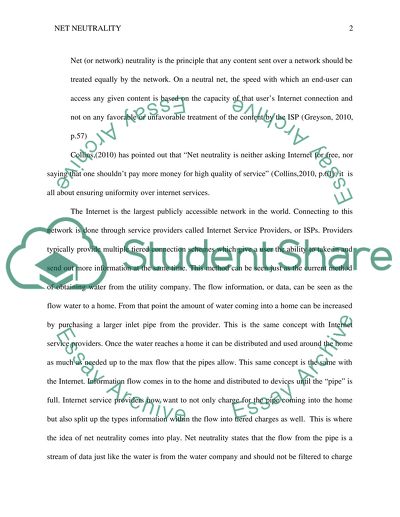Cite this document
(“The argument for net neutrality Research Paper Example | Topics and Well Written Essays - 2000 words”, n.d.)
Retrieved from https://studentshare.org/information-technology/1429792-the-argument-for-net-nuetrality
Retrieved from https://studentshare.org/information-technology/1429792-the-argument-for-net-nuetrality
(The Argument for Net Neutrality Research Paper Example | Topics and Well Written Essays - 2000 Words)
https://studentshare.org/information-technology/1429792-the-argument-for-net-nuetrality.
https://studentshare.org/information-technology/1429792-the-argument-for-net-nuetrality.
“The Argument for Net Neutrality Research Paper Example | Topics and Well Written Essays - 2000 Words”, n.d. https://studentshare.org/information-technology/1429792-the-argument-for-net-nuetrality.


